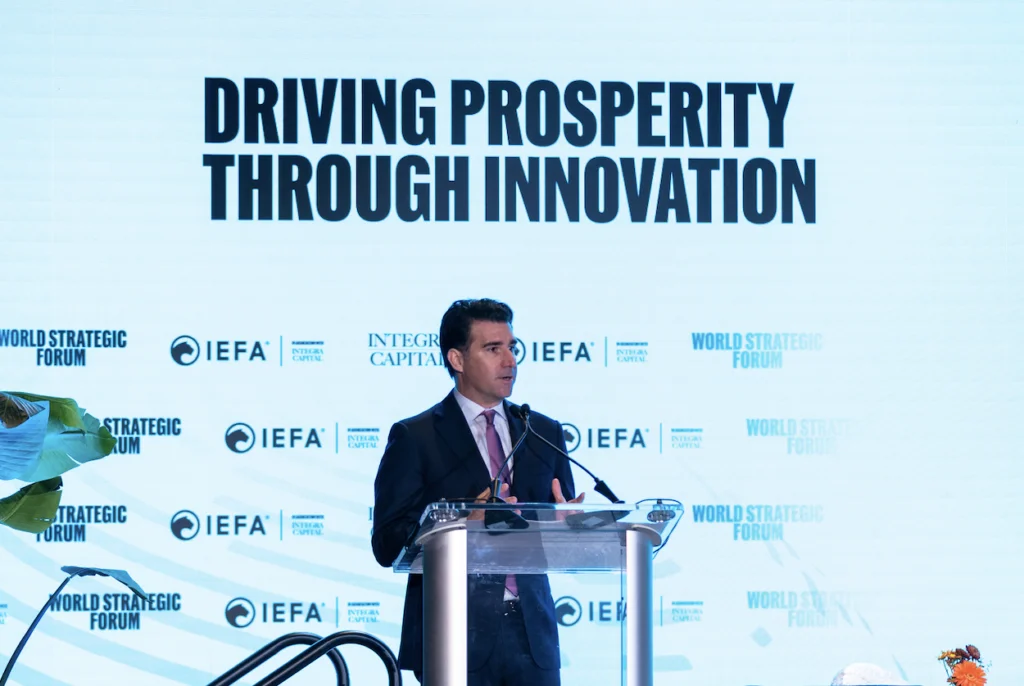Insider Brief
- Vodafone and ORCA Computing have partnered to explore how quantum computing can optimize broadband and mobile network expansion, aiming to improve cost-efficiency and deployment speed.
- The collaboration will use ORCA’s photonic quantum system to solve complex design challenges like fibre routing and mobile base station placement, with the goal of reducing infrastructure costs and improving network performance.
- The initiative builds on the UK’s Quantum Technology Access Programme, where Vodafone and ORCA demonstrated the ability to solve the Steiner Tree Problem in minutes using quantum technology.
PRESS RELEASE — Vodafone and ORCA Computing, a leading quantum computing company, today announced a collaboration to explore the use of quantum technology in identifying the fastest and most cost-effective routes for upgrading and extending fixed and mobile broadband connections to more customers.
Quantum computing has the potential to handle more complex processing tasks than a traditional computer when planning, installing and optimising large mobile radio and gigabit broadband networks.
As the size and complexity of networks grow alongside demand for new digital services, Vodafone is collaborating with ORCA Computing to enhance current mathematical methods used to approximate optimal network layouts. Vodafone’s software will be run on ORCA Computing’s quantum computer – the ORCA PT-2 Series photonic quantum system. The solutions generated by the quantum system could, for example, help reduce total cable length and optimise the location of mobile base stations to maximise speed and minimise major civil engineering work.

Vodafone will initially assess ORCA’s quantum technology for solving complex optical fibre cable design challenges. Over time, Vodafone expects to use quantum principles more widely when modelling its global network which spans more than 200 destinations, including an undersea cable network transporting around 1/6 of the world’s internet traffic, and a new direct-to-mobile broadband satellite communications system.
The partnership with ORCA Computing, headquartered in the UK and with offices in Canada and the US, supports Vodafone’s strategy to enhance and extend its networks using greater automation and powerful new computing technologies. The company anticipates that quantum computing will improve the accuracy of network optimisation, as well as accelerate the use of machine learning and Artificial Intelligence to predict faults before they impact customers.
Luke Ibbetson, Head of Research & Development of Vodafone, said: “Our work with ORCA Computing aims to solve ultra-complex problems which otherwise would take many hours, weeks and even years to process on today’s classical computers. Modelling new networks that maximise speed, reliability and coverage for customers, while navigating urban clutter and rural obstacles, could in future take minutes.”
James Fletcher, Head of Solutions Architecture at ORCA Computing, added: “ORCA Computing’s continued collaboration with the Vodafone team marks an important step toward achieving practical and commercial quantum advantage. We have shown that quantum acceleration of telecommunications use cases is not just a theoretical concept, it’s a viable, deployable and commercially compelling solution.”
The Vodafone – ORCA Computing partnership builds on the joint UK government and private sector Quantum Technology Access Programme (QTAP). At a recent QTAP event, Vodafone worked with ORCA Computing and other industry partners to quickly solve the Steiner Tree Problem, a complex mathematical challenge used today to identify the most cost-efficient way to extend connectivity. Vodafone used the ORCA PT-2 quantum computer to run an optimisation algorithm to work out a particular equation problem in minutes, paving the way for these systems to quickly solve problems that would otherwise take hours using classical computers.















